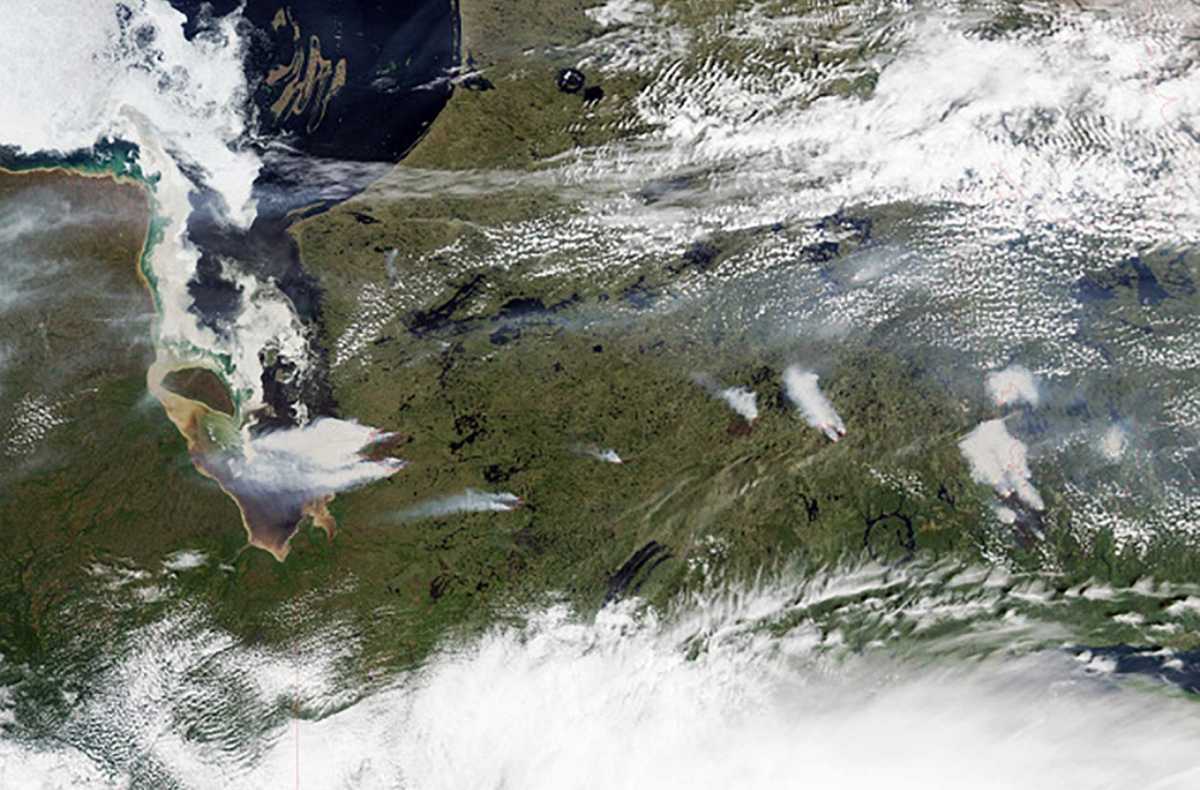The following note was sent from Sandy Houston, Metcalf’s President and CEO, to sector partners and colleagues in November 2017 announcing the launch of a new funding stream in our Environment Program along with other important updates.
Dear Colleagues,
When the Metcalf Foundation launched the Environment Program’s low-carbon focus four years ago the political climate in Ottawa and Toronto was very different. At the time we were struck by the limited amount of Canadian philanthropic support for advancing climate solutions, and determined there was a clear and compelling opportunity to help fill this gap, even if it felt largely aspirational in that political context.
Needless to say, a lot has changed. We have witnessed important commitments to and progress on climate action at all levels of government, tracked a significant increase in Canadian philanthropic support for low-carbon work, and observed a noticeable shift among Canadians in support of a wide range of climate solutions.
In light of these changes, Andre and I have spent part of the past year reflecting on what has been learned and achieved over four short years in Metcalf’s Environment Program.
Through our Cycle City stream Metcalf grantees have successfully advocated to double Toronto’s cycling infrastructure budget from $8 million to $16 million, championed the passage of a new 10-year cycling plan that will add hundreds of kilometres of bike infrastructure on critical streets like Bloor, and produced timely and informative research that puts cycling issues on the front page of local news and civic agendas. We remain committed to this area and our focus going forward will be working with our grantees and partners to ensure these commitments move from paper to pavement. We will also be exploring new ways to connect city cycling as a climate solution to other desired outcomes related to health, equity, and economic prosperity.
With our Enabling Solutions funding stream our focus has been on advancing policy and regulatory changes that create an enabling environment for activities, innovation, and investment in climate solutions at the provincial and national level. Grantees in this area have been at the forefront of a range of significant climate victories. Notable achievements include commitments to put a price on carbon so polluters pay for their emissions, phase out coal-fired electricity, reduce methane emissions in our country’s oil and gas sector, develop a national zero-emission vehicle strategy, and secure substantial public investments in low-carbon solutions.
While all of these commitments are noteworthy, the devil as always is in the policy details. Experience over the past four years suggests a continuing need for balanced, well-researched, and pragmatic policy recommendations around implementation. On multiple occasions, we have heard comments along these lines from senior policy makers: “We’re there, we don’t need to be convinced about making the policy commitment, we need to see thoughtful, well-packaged, and clearly articulated strategies for how to make it a reality on the ground.” Beginning earlier this year and moving forward, our funding in this stream will support a targeted set of efforts that offer practical guidance for implementing existing provincial and national-level climate commitments. In the spirit of moving from an enabling to an implementation position, we are renaming this area of funding Climate Blueprints.
And now, for those of you who are still with us…the announcement of a new funding stream in our Environment Program to complement our other two areas of focus.
When it comes to Canadian climate philanthropy, funders including Metcalf have primarily focused on reducing greenhouse gas emissions from top emitting sectors (e.g. transportation, buildings, industry, electricity). But emissions reductions represent only one side of the climate solutions coin. Nature-based solutions involving carbon storage and sequestration services are also critically important yet often under-represented in climate strategies. Forests and oceans serve crucial roles in storing and absorbing carbon from the atmosphere. If it were not for these ecosystem services, the state of our planet’s climate due to carbon emissions from human activities would be much worse.
From peatlands to kelp forests and grasslands to seagrass, Canada is home to a diversity of carbon rich ecosystems. Yet to date limited action has been taken to protect, restore, and steward the carbon services of terrestrial and marine ecosystems as part of provincial, territorial, and national climate strategies.
Over the past year, we consulted sector leaders from across Canada, the US, and at the international level to help inform the development and design of a new funding stream. Aided by their wise counsel and thoughtful feedback, we are pleased to launch Carbon Landscapes. The goal of this new program stream is to connect climate action and conservation initiatives in Canada in order to help advance nature-based solutions to climate challenges across the country.
In this new focus area, we will support convening, research, and communications work at a policy level. We will also fund place-based strategies that lead to the protection, restoration, and stewardship of landscapes that provide critical carbon services in addition to important cultural, economic, and social benefits. The potential environmental benefits of this area of work are significant — from enhanced carbon storage and sequestration services to greater biodiversity protection. And through direct support for Indigenous-led conservation and stewardship, the Foundation hopes to make a meaningful contribution in support of Canada’s efforts towards reconciliation.
Our place-based focus areas for Carbon Landscapes will be announced in the new year. In the meantime, you can find our funding guidelines and 2018 deadlines for the convening, research, and communications component of this new area along with guidelines for Cycle City and Climate Blueprints here.
As always, we welcome your feedback.
All the best,
Sandy




